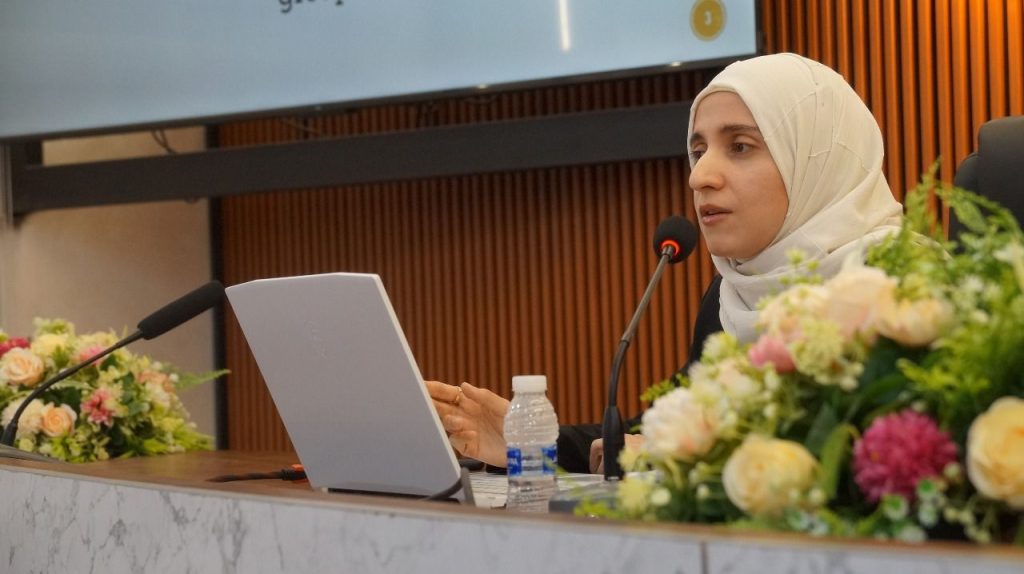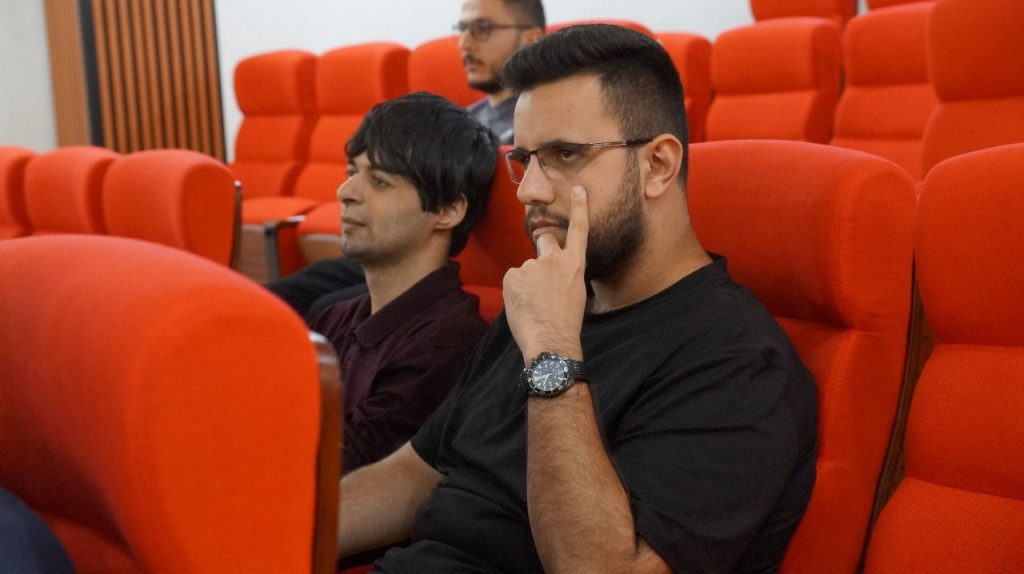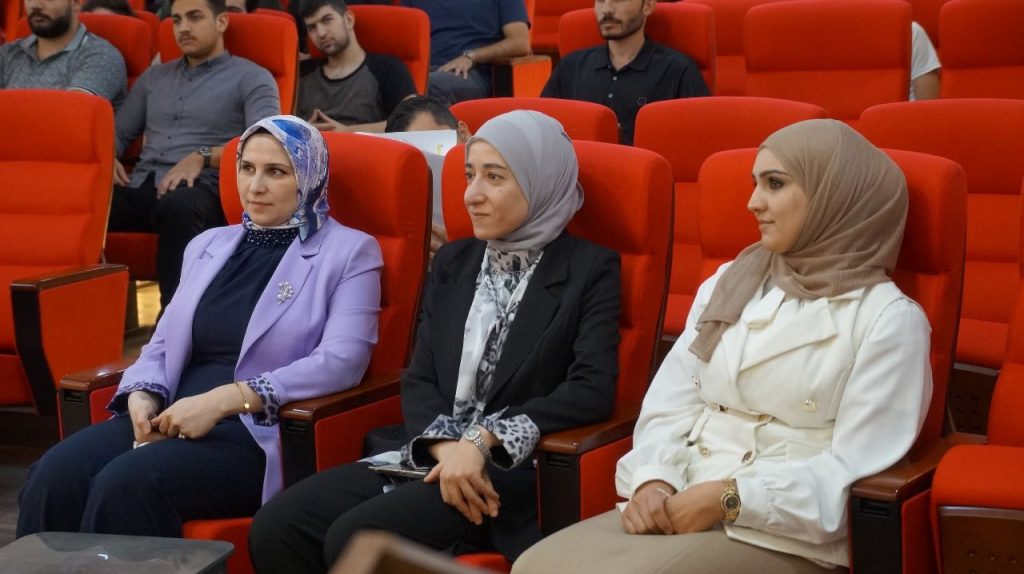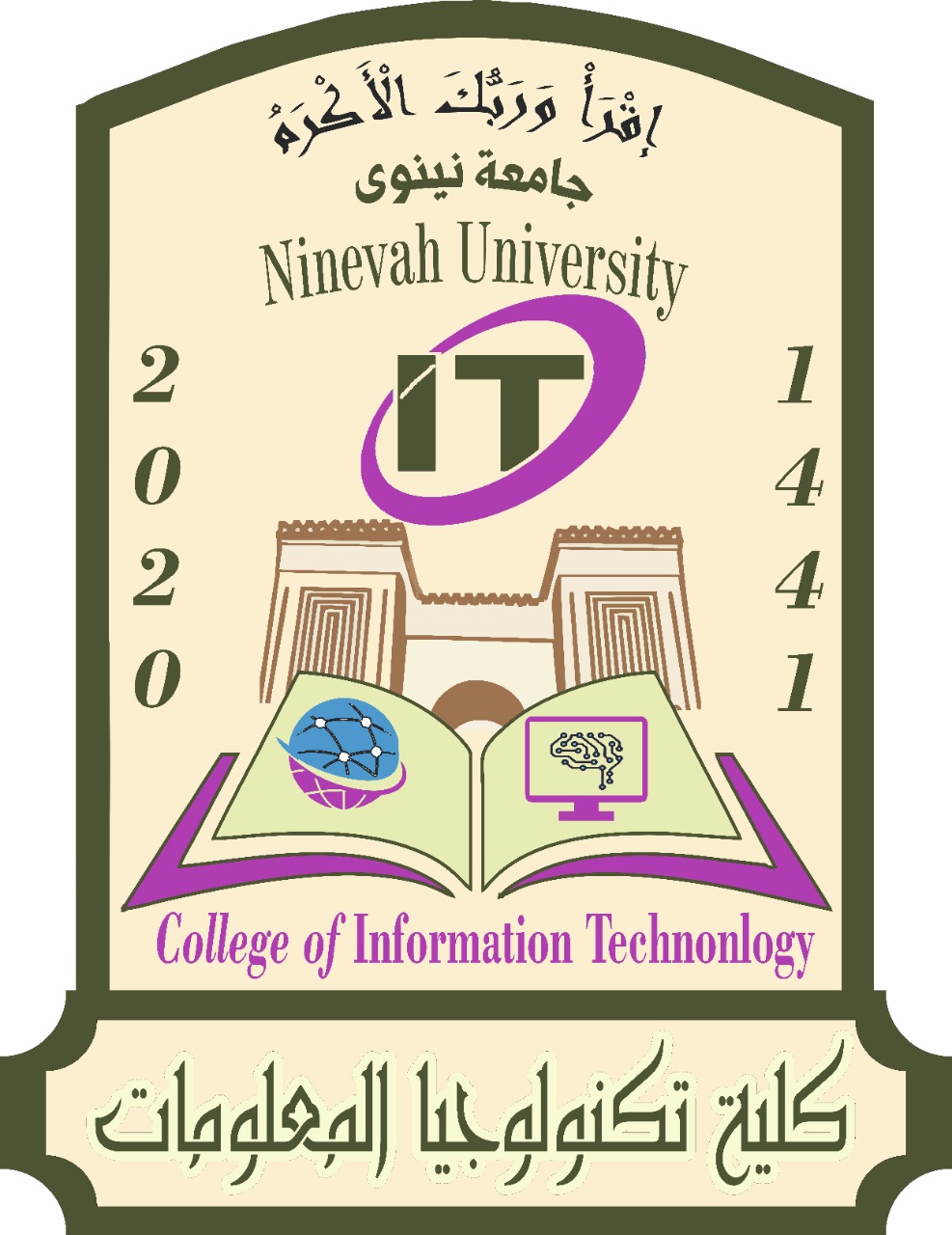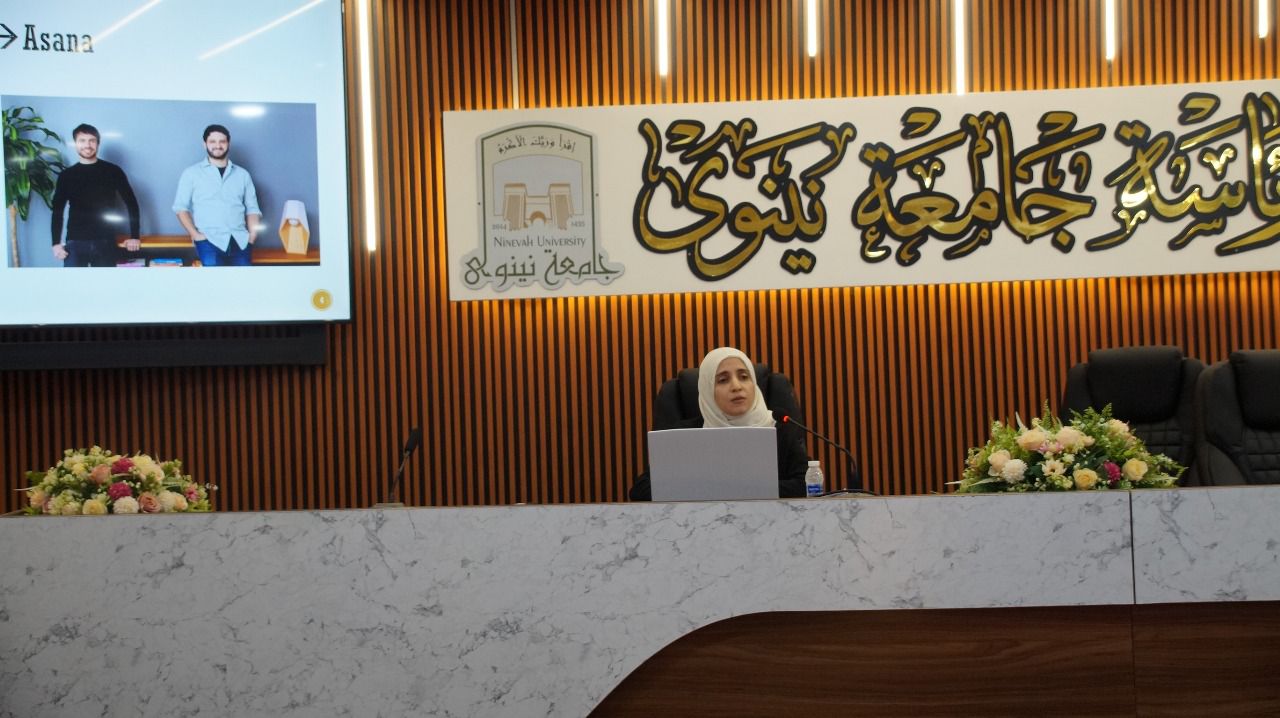As part of the activities of the Qualification, Employment, and Follow-up Division, and in implementation of the division’s annual plan, the Qualification, Employment, and Follow-up Unit at the College of Information Technology held a specialized workshop on Thursday, October 16, 2025, entitled “Using Asana in Software Projects.”
The workshop was presented by Asst.Lec.Safa Sabah Muhammad, and targeted college students and graduates with the aim of developing their knowledge and skills in software project management. The workshop showcased Asana as an integrated work management platform that helps teams organize, track, and manage their tasks from start to finish, reducing chaos and enhancing efficiency and transparency.
The focus was on the importance of Asana in the modern job market, as it has become an essential tool relied upon by many large and emerging companies alike, such as GE, Uber, Zoom, Spotify, and NASA. Using such tools is no longer just an option; it’s part of the digital transformation and new work culture, which requires employees to be able to work within distributed teams and manage projects with high efficiency.
To maximize the benefit, the fourth-year students’ graduation project was used as a case study and practical application during the workshop. This provided students with the opportunity to practice using the tool in the context of a real project, especially since the students had already begun working on their graduation projects. This enabled them to gain direct practical experience that they can later apply when they enter the job market and secure job opportunities within companies.
Hence, the importance of this workshop lies in preparing students for the job market and bridging the gap between what they learn academically and the practical skills required by companies. Students need to acquire digital transformation skills and work on modern platforms, which have become a standard in contemporary work environments.
The workshop witnessed significant interaction from the participants, and included meaningful discussions and exchange of views, contributing to enhancing knowledge and broadening students’ understanding of modern software project management mechanisms and the importance of specialized tools in this field.


